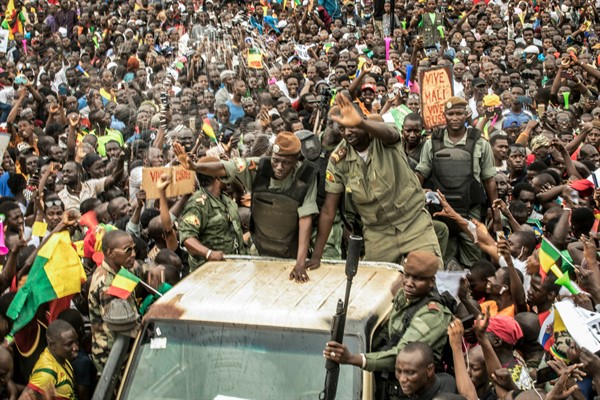In the early hours of Aug. 19, five men in various shades and styles of military fatigues took to Mali’s national TV station to introduce themselves. The mid-ranking officers had begun the previous day with a mutiny in the garrison town of Kati and ended it by arresting the president, Ibrahim Boubacar Keita, in the capital, Bamako. Malians had been glued to their TV sets for hours. First, they watched a detained Keita offer his resignation and dissolve the Malian government on live TV. Then, they met the anonymous men in berets who were now in charge—and still are.
Calling themselves the Comité National pour le Salut, or CNSP, the junta pledged to “organize general elections to allow Mali to equip itself with strong institutions within a reasonable time limit,” and to oversee a “political transition leading to credible elections for the exercise of democracy through a roadmap that will lay the foundations for a new Mali.”
Keita was a deeply unpopular figure, and his downfall was certainly foreseeable. Yet as historian Gregory Mann noted, “It’s still amazing what a few men with assault rifles and SUVs can accomplish in West African politics.” The August coup marks the second time in eight years that the Malian military has removed a president who, at least by the slippery and ambiguous standards of the international community, was twice democratically elected. What’s more, it ushers in a new phase of political uncertainty for a country that has gone from international darling to international quagmire in less than a decade.

